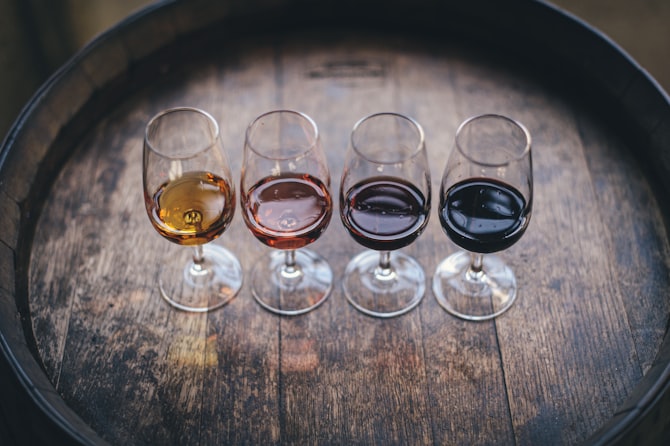Jean-Paul Brun started his Beaujolais Domaine des Terres Dorées, meaning golden stones, in 1979. - When I first started with Terres Dorées, I made wine in the conventional way, like I had learned at school, Brun tells us after a tasting at Grand Hotel in Stockholm. -I started thinking about how we were working the soil, and it became increasingly important to get closer to nature and to protect the land for future generations, he continues. Thus, for the past 20 years he has been working his soil and making his wines in the most natural way he can.
Brun has had a busy schedule before arriving in Stockholm for the Haut Les Vins, spending the previous week in London at the very successful RAW natural wine fair. By many, Brun is considered part of the core of the original “natural wine” movement. But does he define himself that way? - There is no precise definition of ‘natural’ wine, and I do use a small amount of sufites in my wines, he explains. - The 32 members of Haut Les Vins don’t agree on everything, but the key is that we all work based on our convictions and are open with our practices and make wine with honest and sincere intent, says Brun. Most of the producers in the group are organic or biodynamic and some define themselves as ‘natural’, but all are artisan grower-winemakers. He feels that The industrial wine producers are starting to go too far in the manipulations of the wine.
- If we let the industrial, streamlined wines continue to take over at the current pace, there will be no grapes left for us to make ‘real’ wine with, says Brun a bit exasperated. Real wine? -What the big, industrial producers make is not really seen as ‘wine’ by us small, artisan producers. We need to explain our point of view or theirs will dominate.
Jean Paul Brun is considered a balanced, analytical ‘natural wine’-proponent. He expresses the opinion that a wine needs to be clean, well balanced and good before it should be on the market and that ‘natural wine’ with faults is damaging to the entire category. - The answer is never in the extreme, he sighs. Still, there is a verve of “us” (artisan, environmentally aware, grower-winemakers) v.s. “them” (industrial, large-scale producers with standardized wine offerings) in his description of the wine market. - The interest for authentic wines is not all about defining ‘natural’ or use or non-use of sulfites,”says Brun with emphasis. He then continues, - It goes deeper. We have come to a point where the majority of wines in key markets such as France and England are purchased in supermarkets, with the consumer not knowing really what they are buying or who made it. People have an innate, intellectual urge to understand what we are eating and drinking and I think there will be a return to buying from growers that the consumers know and can relate to.
The wines: Brun does not use any added yeast, which is otherwise standard in France and definitely the norm in Beaujolais where the yeasts are generally aromatic. "Aromatic" means that the yeast gives a particular flavor to the wine. In Beaujolais wines it’s generally yeast 71B, especially noticeable because of its flavors of banana and fruit candy. Instead, Brun wishes to express the pure style of the Gamay grape. Brun grows small parcels of white grapes and pinot noir, but start with his trademark gamay. The style is light, fresh with lots of pure fruit and a touch of herbal notes on top of good structure and minerality. Do try the Cote de Brouilly, the Fleurie or the Morgon; they are occasionally available in Sweden at Systembolaget or for the trade through Prästgårdens Vinhandel. These are expressive, personal wines that work great with food.
PS Ericas Miljö by Erica Landin on Tuesdays at Vinbanken will from now on be primarily in english since the topics of natural/organic/biodynamic wines, environment, CSR etc have an international appeal. Please do let me know your thoughts regarding the change.
Av: Erica Landin











